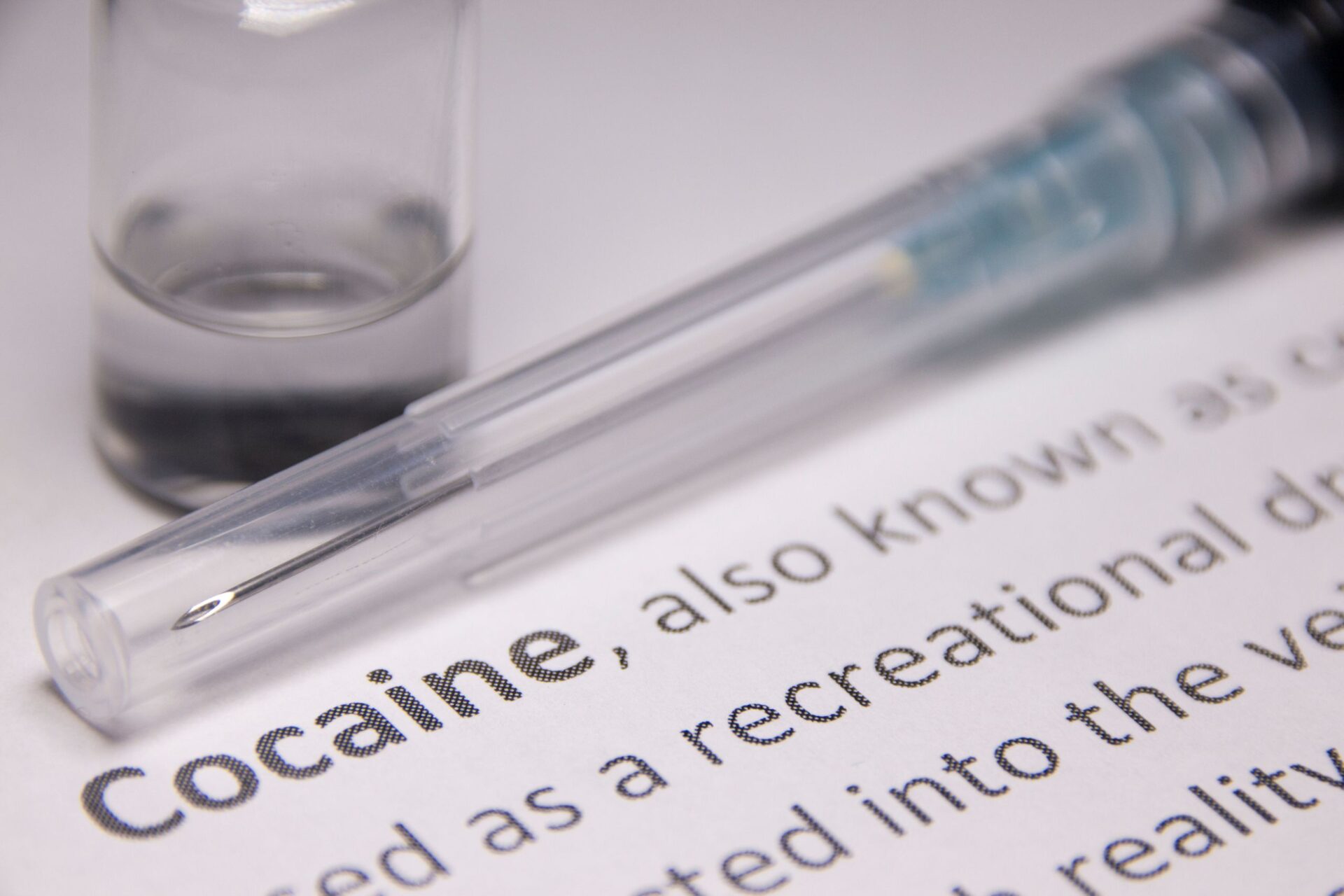
Cocaine is a powerful stimulant drug that can have serious effects on the brain and body. Whether you’re concerned about a drug test or want to understand the long-term impact of cocaine on your health, knowing how long it stays in your system is important. The amount of time cocaine remains detectable in the body depends on various factors, including how often it is used, the amount taken, and your overall health.
In this article, we’ll explore how long cocaine stays in different parts of the body, what influences how long it stays, and why it’s essential to seek help if you’re struggling with cocaine use. Lake Ave Recovery in Massachusetts is here for you, every step of the way.
If you or a loved one is struggling with drug addiction, take the first step towards recovery! Reach out today by heading to our admissions page or calling us now.
What is Cocaine?
Cocaine is a highly addictive stimulant derived from the coca plant. It produces short-term euphoria, energy, and alertness but comes with serious risks, including addiction, health complications, and even death. Cocaine can be snorted, smoked, or injected, and each method of use affects how quickly it takes effect and how long it remains in your system.
How Long Does Cocaine Stay in Your System?
The length of time cocaine stays in your system can vary depending on several factors, such as how much cocaine was taken, the frequency of use, and individual metabolic rates. Below, we’ll break down how long cocaine can be detected in different parts of the body.
Blood
Cocaine typically stays in the blood for a relatively short amount of time. For occasional users, it can be detected in the bloodstream for about 12-48 hours after use. However, for chronic or heavy users, cocaine may remain detectable in the blood for up to 72 hours.
Urine
Urine testing is one of the most common methods used to detect cocaine. For occasional users, cocaine can typically be detected in urine for up to 2-4 days after use. However, for chronic or heavy users, cocaine may remain in the urine for up to 2 weeks.
Hair
Hair testing provides a longer detection window for cocaine use. Cocaine can be detected in hair samples for up to 90 days (three months) after use. This is because drug metabolites are incorporated into the hair shaft as it grows, allowing for long-term detection.
Saliva
Cocaine can also be detected in saliva for up to 1-2 days after use. Saliva tests are less common than urine tests but can provide a quick and non-invasive method of detecting recent cocaine use.

What Factors Affect How Long Cocaine Stays in Your System?
Several factors can influence how long cocaine remains in your system, including:
- Frequency of Use: The more frequently you use cocaine, the longer it stays in your system. Chronic users often take longer to metabolize and eliminate cocaine from their bodies.
- Amount Used: Larger doses of cocaine take longer for your body to process, resulting in a longer detection window.
- Method of Use: Using cocaine by snorting, smoking, or injecting affects how quickly your body metabolizes the drug. Injecting cocaine, for example, results in faster absorption and elimination.
- Body Weight and Metabolism: Individuals with faster metabolisms will process cocaine more quickly, while those with slower metabolisms may take longer to eliminate the drug.
- Hydration and Diet: Staying hydrated and maintaining a healthy diet can help your body process drugs more effectively.
- Liver and Kidney Function: Individuals with liver or kidney issues may take longer to eliminate cocaine from their system because the liver processes the drug, and the kidneys excrete it.
Why Is It Important to Know How Long Cocaine Stays in Your System?
Understanding how long cocaine stays in your system is crucial for several reasons. If you’re undergoing a drug test, whether for work or legal purposes, it’s important to know the detection windows for various testing methods. Additionally, knowing how long cocaine remains in your body can help you understand the long-term effects of drug use on your health.
Cocaine is a highly addictive drug, and regular use can lead to serious physical and mental health issues, including heart problems, stroke, anxiety, and depression. If you’re struggling with cocaine use, it’s important to seek help as soon as possible. Addiction is a serious disease, but with the right support and treatment, recovery is possible.
Health Risks of Cocaine Use
Using cocaine, even occasionally, can have dangerous effects on your health. Some of the risks associated with cocaine use include:
- Heart Problems: Cocaine can cause an increase in heart rate, blood pressure, and the risk of heart attack or stroke.
- Mental Health Issues: Cocaine use can lead to anxiety, depression, paranoia, and hallucinations. Chronic use can result in long-term mental health issues.
- Addiction: Cocaine is highly addictive, and even occasional use can lead to dependence. Once addicted, individuals may find it difficult to stop using without professional help.
- Respiratory Problems: Smoking or inhaling cocaine can damage the lungs and lead to chronic respiratory issues.
- Overdose: Cocaine overdose is a real and life-threatening risk. Symptoms of overdose include difficulty breathing, seizures, heart attack, and loss of consciousness.
What Happens When You Stop Using Cocaine?
When someone stops using cocaine, they may experience withdrawal symptoms as their body adjusts to the absence of the drug. Common withdrawal symptoms include:
- Fatigue
- Depression
- Increased appetite
- Anxiety
- Difficulty concentrating
- Intense cravings for cocaine
These symptoms can make it difficult to quit without professional support, but detox and rehab programs can help individuals manage withdrawal and work toward recovery.
If you or someone you know is struggling with cocaine addiction, seeking professional help is the best step toward recovery. At Lake Ave Recovery, we offer comprehensive treatment programs tailored to meet the unique needs of each individual. Our experienced team provides a range of services, including detox, therapy, and aftercare support, to help individuals achieve long-term sobriety.

Call Us At Lake Ave Recovery In Massachusetts Today
At Lake Ave Recovery, we understand the challenges of overcoming cocaine addiction, and we’re here to help. Our compassionate team of professionals supports you through every step of your recovery journey. From detox to therapy and beyond, we provide the tools and resources you need to rebuild your life free from addiction.
If you or a loved one is struggling with cocaine use, don’t wait to seek help. Call us today or head over to our admissions page to learn more about our programs and how we can support your path to recovery. Together, we can help you break free from addiction and build a brighter future.
